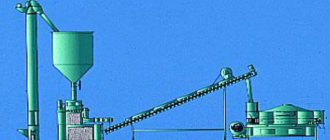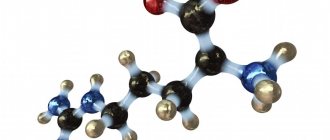Author: article provided by the store sportivnoepitanie.ru 2014-11-27 Views:
13 251
Grade:
5.0
| Medals articles >> |
Articles are loading...
As you know, the primary task when gaining lean muscle mass is to provide the body with enough protein. It is the consumption of protein foods that ensures a positive nitrogen balance - the main criterion on which depends how quickly our muscle tissue will recover and how quickly new muscle fibers will form. This article will focus on animal protein, namely beef.
Benefits of Beef Protein
Beef protein has conquered the market in the wake of the popularity of CrossFit and the Paleo and Carnivore diets common in it. Adherents of these systems believe that milk, including highly purified whey, has a bad effect on the body.
Whey can:
- Cause digestive disorders;
- Cause allergies;
- Slow down recovery;
- It simply does not work as a base for sports nutrition.
Therefore, beef protein was developed for fans of meat-based diets. It does not cause allergies, does not contain lactose and gluten, is practically free of harmful fats and is of high quality.
And another 30-90 g of beef protein per day will help you get enough creatine. So there may be savings if you buy 1 instead of 2 sports nutrition products.
The advantage of the product is that it makes it easier for people with a high protein intake to gain the required number of grams of protein per day.
But all these advantages for the average “jock” are lost at a high price. So is it worth spending money on the fashionable “carnivore” protein?
Top 5 best meat protein producers
Muscle Meds Carnivor
Beef protein isolate is formulated with nitrogen retention technology to improve anabolism. The product does not contain fat, milk sugar, or cholesterol. One serving (32.5 g) contains: 116 calories, 6 g carbohydrates, 23 g protein, creatine monohydrate, BCAA, maltodextrin, soy lecithin, sucralose. Cost for 908 g – 2400 rubles; 1816 – 4100 rubles; 3632 g – 7200 rub.
Scitec Nutrition 100% Hydro Beef Peptide
The supplement contains hydrolyzed beef peptide protein isolate - 25 grams per serving, 1.5 g fat, 4 g carbohydrates, potassium and sodium. Also contains BCAAs. The cost of the supplement for 900 g (30 servings) is 2000 rubles; for 1800 g (60 servings) – 3500 rubles.
Platinum 100% Beef Protein
One 32 g serving of hydrolyzed beef protein contains: 110 calories, 3 g carbohydrates, 24 g protein, 3 g creatine, vitamin A, C, calcium, sodium, whole brown rice powder. Does not contain sugar, fats or cholesterol. The cost for 908 g is 3500 rubles.
Dymatize Elite Primal
Beef protein consists of a mixture of hydrolyzed peptides, hydrolyzed beef protein, and beef albumin. One serving contains 27 grams of protein, BCAA, 3 g of creatine monohydrate, providing a high rate of anabolism, sodium, calcium, iron. Does not contain fats and cholesterol. Cost for 924 g – 1500 rubles; for 1832 - 4010 rubles.
SAN Titanium Beef Supreme
Beef protein hydrolyzate contains BCAA, glutamine, creatine monohydrate. Minimum fat and carbohydrate content. The cost for 947 g is 2090 rubles, 1838 g is 3950 rubles.
Who should buy whey protein?
Whey is an ideal drink for those who:
- There are no digestive problems - bloating, gas formation and colic after consuming large amounts of protein;
- No lactose intolerance;
- There is no allergic reaction to milk proteins and other components of complex proteins.
But many athletes simply buy one type of protein and drink it in high doses. Thus, they deprive themselves of a balanced diet, and will not receive all the amino acids.
It's simple - if your stomach does not bloat after regular whey protein, there is no gas formation or other problems, you can buy whey.
Carcinogenic effect of protein intake.
Breast cancer and protein.
Analysis of information on the degree of influence of the amount of protein consumed on the development of breast cancer suggests that protein consumption does not contribute to the development of breast cancer.
Ovarian cancer and protein.
Various studies have also found no connection between the development of ovarian cancer and the amount of protein consumed.
Prostate cancer and protein.
Canadian scientists examined the connection between prostate cancer and protein intake, but no connection was found.
Laryngeal cancer and protein.
Researchers from the USA have identified a connection between protein consumption and the likelihood of developing laryngeal cancer - with increasing consumption of animal protein, the risk of developing laryngeal cancer increases, and with vegetable protein consumption, the risk decreases.
Esophageal and stomach cancer and protein.
The assessment of the association between protein intake and esophageal and gastric cancer is based on a US case-control study. They found a statistically significant increase in risk with increased intake of total and animal protein and a decrease in risk with increased intake of plant protein.
Pancreatic cancer and protein.
When Canadian scientists determined the relationship between protein intake and pancreatic cancer, no statistically significant values were found.
Kidney cancer and protein.
The association between protein intake and kidney cancer risk is based on an analysis of 13 prospective cohort studies. The researchers found no statistically significant associations of total, animal or plant protein with kidney cancer risk.
Colorectal cancer and protein.
When studying the effect of protein intake on colorectal cancer, no statistically significant values were found. There was also no effect of consuming protein exclusively from animal sources.
This is complete and has nothing to do with natural products. Protein is a concentrate of regular nutrition. Thanks to special modern technologies, excess components and ballast substances are removed from natural products.
Proteins are harmless to health at any age. We can say for sure that the harm of protein is very insignificant in comparison with the changes in the body that occur after regular consumption of confectionery and fast food.
When is beef protein best?
We dealt with digestion and allergy problems. But there is one more point that everyone misses when doing bodybuilding. The main recommendation for athletes of this sport is to choose 3-4 different types of protein and alternate them.
This will allow:
- Absorb food faster;
- Get a more complete amino acid profile;
- Recover faster after exercise;
- Save on extra amino acids and creatine.
So beef protein is a product for those who train actively and hard. That's why CrossFitters love him.
Beef
Beef is widely used in the nutrition of athletes as a source of protein that is highly valuable and balanced in amino acid composition. This product contains a full composition of nonessential and essential amino acids, so necessary for the normal functioning and development of the body. Beef is also a source of easily absorbed iron, which is essential for people suffering from iron deficiency anemia. The product is a source of natural creatine, the effectiveness of which has been repeatedly proven in scientific experiments and the experience of millions of its fans around the world. However, there are some disadvantages to using beef as the main source of protein.
Firstly, the body spends enormous effort on digesting and assimilating such a complex product. Because of this, various disorders of the gastrointestinal tract are possible in the form of diarrhea, dyspepsia, flatulence and others. During the metabolism of beef, a large amount of acidic metabolic products is released, which can lead to acidification of the body. The resulting acidosis contributes to metabolic disorders, stone formation in the kidneys and liver, and provokes the development of certain diseases. Recently, close attention has been paid to the ability of red meat to provoke the growth of cancer and accelerate the aging process.
What to look for when choosing a product
Beef proteins do not require an additional complex of enzymes in their composition. They are already absorbed quite quickly. But other selection criteria deserve attention:
- Contains aspartame and acetyl sulfame . These two sweeteners are potential carcinogens, but they can be used in the food industry. Protein powders with such sweeteners are cheaper than those made with natural stevia.
- Availability of dyes . They are fine if you are not allergic. But for those who suffer from an allergic reaction, this is not the best option.
- Production time . Beef protein is not the most popular product; there are cases when expired goods are sold.
There are protein powders on the market, as well as ready-made drinks made from beef protein. The latter are absorbed a little faster and are more convenient for those who snack on the run and who don’t even have time to stir the protein in a shaker.
The influence of drinks on the stronger sex
Due to their specific hobbies, men are more likely to consume sports nutrition than women. Compliance with all recommendations for the use of sports nutrition does not pose any danger for men. However, there are many rumors that drinking the mixture promotes baldness and causes impotence.
On the contrary, consuming high-protein foods leads to increased sexual desire. This occurs due to an increase in testosterone levels. Regarding baldness, you need to know that human hair consists mainly of protein. Therefore, the cause of sparse hair may be a lack of protein.
In most cases, experts do not recommend frequent consumption of soy mixtures for the stronger sex. Phytoestrogens, which are contained in soy-based products, are very similar in action to female sex hormones. The effect of these substances can contribute to the feminization of the male sex.
How to take beef protein correctly
There is one caveat when taking beef protein. It takes a little longer to digest than whey protein. Therefore, to prevent dyspepsia, it is recommended to drink it an hour before the start of training and immediately after it.
The quantity is determined individually. The calculation takes into account the person’s current diet and the amount of protein in it, as well as the number of meals. Ideally, you should take beef protein separately from other foods. Naturally, it is diluted in water, not milk.
There is no consensus about juice; if an athlete needs additional carbohydrate energy, this can be done.
It is optimal for a healthy person to alternate between beef, whey and complex proteins and supplement your diet with casein as needed.
About protein
The protein molecule contains amino acids, which, after dissolution by gastric juice, make it possible to assemble a new protein chain that can be used for tissue construction. This process is called protein synthesis. Scientists count up to 140 amino acids in nature. Of these, only twenty are suitable for protein synthesis in the human body. An adult body requires only eight essential amino acids. They must be obtained from food.
If a protein source is poor in any amino acids, it is considered incomplete. Part of this incomplete protein will be used to supply energy to the athlete’s body, and nothing will be left for building muscles. To form muscle mass, protein is needed (beef, whey, egg, soy and others). No matter how much a bodybuilder consumes such deficient protein from foods, he will not see muscle growth. In order for the process of producing building material for muscles to work, it is necessary to supplement the diet with foods that contain the missing protein in excess. For example, bread is supplemented with beans, beans with rice, fruit jelly with milk, etc.
However, it is often difficult to provide such nutrition for yourself, so protein mixtures come to the rescue.
Who should not eat beef protein?
This is a common sports nutrition product, the contraindications are standard - kidney disease, requiring a reduction in the amount of protein in the diet, as well as individual intolerance to the product.
How does beef protein taste? Most people can't tell the difference between it and whey. Only the cocktail turns out less thick. But you can always add psyllum or guar gum.
So, beef protein is suitable for those who are allergic to lactose, allows for faster recovery and is included in the lines of all top sports nutrition manufacturers.
Advantages and disadvantages
Unlike plain meat, the protein supplement is enriched with vitamins and minerals that help improve immunity and metabolism. Protein increases the effectiveness of training and reduces fatigue from exercise. In addition to a full set of amino acids and high biological value, this beef protein, the pros and cons of which are well known to professional athletes, contains natural creatine, which performs the functions of energy exchange in the body in nervous and muscle tissue.
In addition, this protein is free of carbohydrates, gluten, lactose and cholesterol. It has no milky taste. The downside of this type of protein is the price: it is higher than that of whey protein. But compared to the positive effects of beef protein, this disadvantage can be omitted.
Application in the sports nutrition industry
The sports industry produces only beef protein isolate. Nutrition for athletes containing beef protein is produced by several companies located in the United States. Such products are presented in small quantities on the world market.
To obtain protein, manufacturers use only the best beef that meets all international standards. First, the beef is ground and heated. The mixture is then passed through filters to remove excess fat. Then the product undergoes additional thermal heating and drying. The result is a powder containing large amounts of protein and beneficial amino acids.











